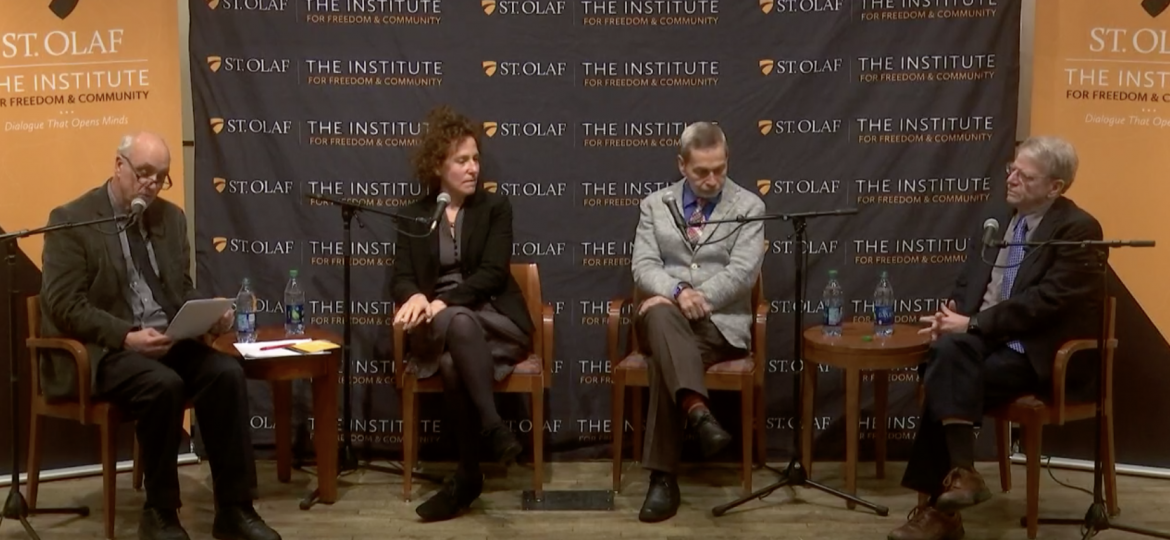
The Institute for Freedom and Community hosted a panel discussion on “Immigration, Populism, and the European Union” in Viking Theater on Wednesday, April 10. The event featured three distinguished scholars who discussed the effects of mass immigration to Europe and its potential connection to the rise of European populism.
The event was moderated by religion and philosophy professor Edmund Santurri and is the third in the Institute’s spring series, titled “Who is my neighbor? Immigration, Freedom, and Community.”
The panel featured Jane Freedman, Professor of Sociology at the University of Paris, Frank Furedi, Professor Emeritus of Sociology at the University of Kent and Arthur Goldhammer, senior affiliate at Harvard University Center for European Studies.
Santurri began by asking the panelists to explain, “how we should begin thinking about [immigration] on this side of the pond from a European perspective.”
Freedman opened the discussion by explaining how she thinks the European Union has failed in its management of immigration. She offered the statistic that one million people arrived in the EU in 2018, which she concluded is not a huge number in the full European context and could be handled much better by European governments.
Freedman looked to contextualize immigration issues within the backdrop of the European Union and connect these issues to the domestic debate surrounding immigration.
Furedi explained the growth of populism in many European countries as a result of cultural uncertainty, which he described as the feeling that certain unique cultures are not being preserved.
“The inability to answer this culture question is what makes people feel afraid and anxious,” Furedi said.
He connected these ideas of fear and anxiety to the rise of populism, stating that, “these senses are very important and very powerful factors in European politics.”
Furedi went on to explain the dialectical tension of state borders, offering that the tension is felt when borders act as both an area of admittance and a barrier to entry.
Goldhammer was the final panelist to speak. He identified four essential cleavages which explain the current state of the European Union, those being a cleavage between France and Germany, a north-south divide, an east-west divide, and the evident cleavage between the United Kingdom and the EU
Goldhammer explained how the reason for many of these cleavages is immigration and how European countries have not equally shared the burden of managing immigration. He argued that the unequal sharing of this burden has exacerbated the economic and cultural problems that face Europe today.
During the discussion, there was a clash between Freedman and Furedi over the effect of immigration. Freedman argued that immigration is inevitable and necessary for European society because of legal and moral precedent, while Furedi urged that immigration is creating cultural uncertainty that fuels populist sentiments.
Goldhammer looked to expand the perspective of the discussion, reinforcing a historical consideration for the topics being discussed, such as the refugee crisis and cultural assimilation.
Furedi accepted many questions from the audience regarding his cultural uncertainty standpoint. Questions raised by the audience focused on issues of race and the difference between migrants and refugees.
The Institute’s spring series will conclude with a panel discussion titled “The Question of Assimilation/Incorporation in 21st Century America” on Tuesday, April 16.

